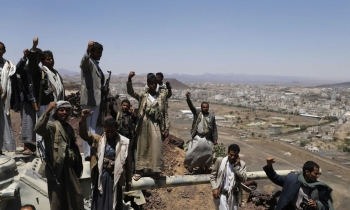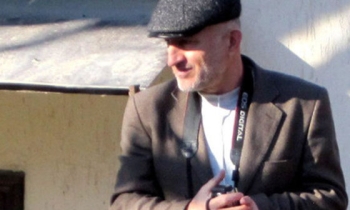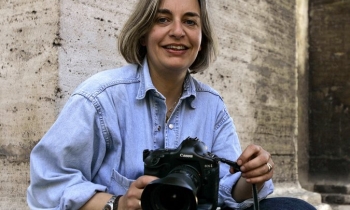She is a fearless journalist, she has endured numerous death threats because of her uncompromising professionalism, and her journey to bring out the truth has been the full of roadblocks. Yet, the passion doesn’t seem to die in the courageous Lydia Cacho Ribeiro, a 44-year-old Mexican journalist.
Cacho received Courage Award by International Women’s Media Foundation (IWMF) recently for her heroic spirits and work on domestic violence, organised crime and paedophilia.
A correspondent for CIMAC news agency and a feature writer for Dia Siete magazine, Cacho is also a human rights advocate. She is the founder and director of the Centro Integral de Atención a las Mujeres in Cancún, a crisis centre and shelter for victims of sex crimes, gender-based violence and trafficking.
Cacho began her career in the mid-1980s, when she worked for the cultural section of the newspaper Novedades de Cancún. In the 1990s she wrote articles about the prostitution of Cuban and Argentine girls in Cancún. From 1994-1999, Cacho hosted a public radio programme called Estas Mujeres [These Women], and she anchored the television program Esta Boca es MÃa [This Mouth is Mine] from 2000-2005. During this time, Cacho also wrote a political analysis column called Interludio [Interlude], which ran for 12 years in various magazines and newspapers in Mexico.
Cacho has penned down many books including Mujer Delfin [Dolphin Woman], a poetry book published in 1997, and Muerdele El Corazon [Bite the Heart], a novel published in 2005 about a woman who is HIV positive. But the most controversial of her writing has been Los Demonios del Edén [The Demons of Eden] in 2004 exposing child pornography and connected child-sex tourism rings in Cancun to the high end political and corporate circle of Mexico.

This and her other works on the issues of human trafficking and the international sex trade led to great uproar amongst the high ranking officials and her subsequent arrest in 2005 on libel charges filed by denim textile products magnate José Camel Nacif. She was driven to a jail 20 hours from her home in Cancún, with officers hinting that there was a plan to rape her.
In 2007, she was set free after payment of a fine. She later filed a successful counter-suit for corruption and violation of human rights.
In February 2006, a recording of a conversation between a businessman and a Mexican governor discussing a plan to have her arrested and raped was obtained by the media. Several years earlier, in 1998, Cacho was raped and beaten in the bathroom of a bus station. She suspects the attack was related to her work.
In recent years, Cacho has written extensively about paedophiles. On May 8, Cacho's car was sabotaged while she was testifying at the trial of an accused paedophile Jean Succar Kuri, one of men she wrote about in her book. Although, she was being escorted by three policemen because of the constant death threats. As she and her police bodyguards drove away from Mexico City's airport after her arrival, the driver lost control and nearly crashed. Her bodyguards discovered that the nuts had been loosened on one of the wheels. Kuri had earlier warned her that he would soon do away with her for exposing him in her book.

Recently, the magistrates of the Supreme Court (Suprema Corte de Justicia de la Nación) sent an important signal regarding their own autonomy and respect for freedom of expression in Mexico by debating a recommendation for some kind of judgment to be made regarding Puebla state Governor Mario MarÃn Torres, a member of the Partido Revolucionario Institucional (PRI) party, for his participation in the violation Cacho’s constitutionally-guaranteed rights, in relation to the publication of The Devils of Eden.
Mexico is one of the deadliest countries for the press to be the western hemisphere. It ranks 132nd in the Worldwide Press Freedom Index by Reporters sans Frontieres (RSF) that includes 167 countries. Observers say that by simply discussing the Cacho case, magistrates are setting a precedent that will make exercising freedom of expression less fraught with uncertainties and danger. Freedom of expression has been a hostage of powerful criminal groups in Mexico who threaten and even physically attack journalists.
However, in spite of the obstructions by the authorities and local officials, the struggle to unmask corruption and organised crime continues for the daring lady. While accepting the award from Global human rights group Amnesty International for her crisis centre, Cacho had recalled the words of her mother, “Never negotiate your freedom. If you lose your freedom, you lose everything.â€









